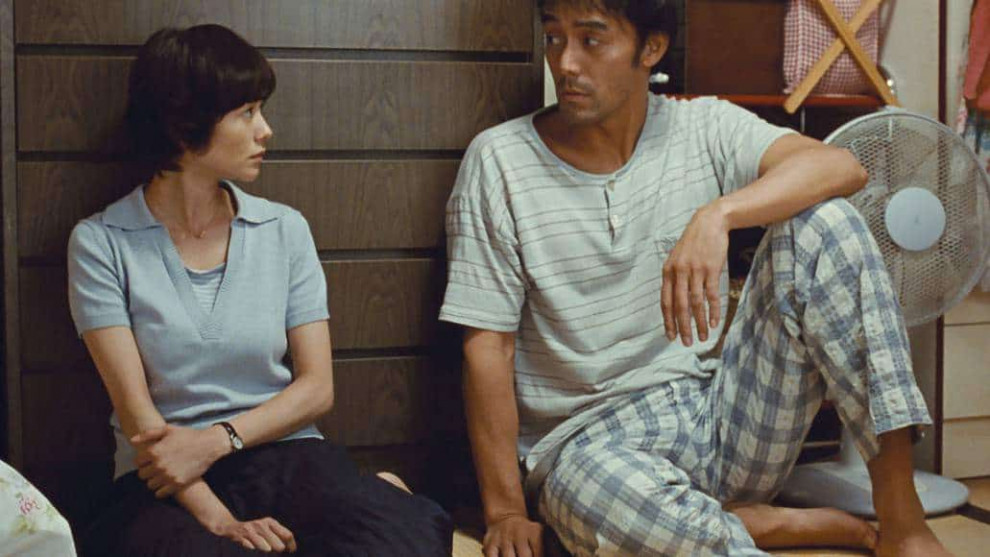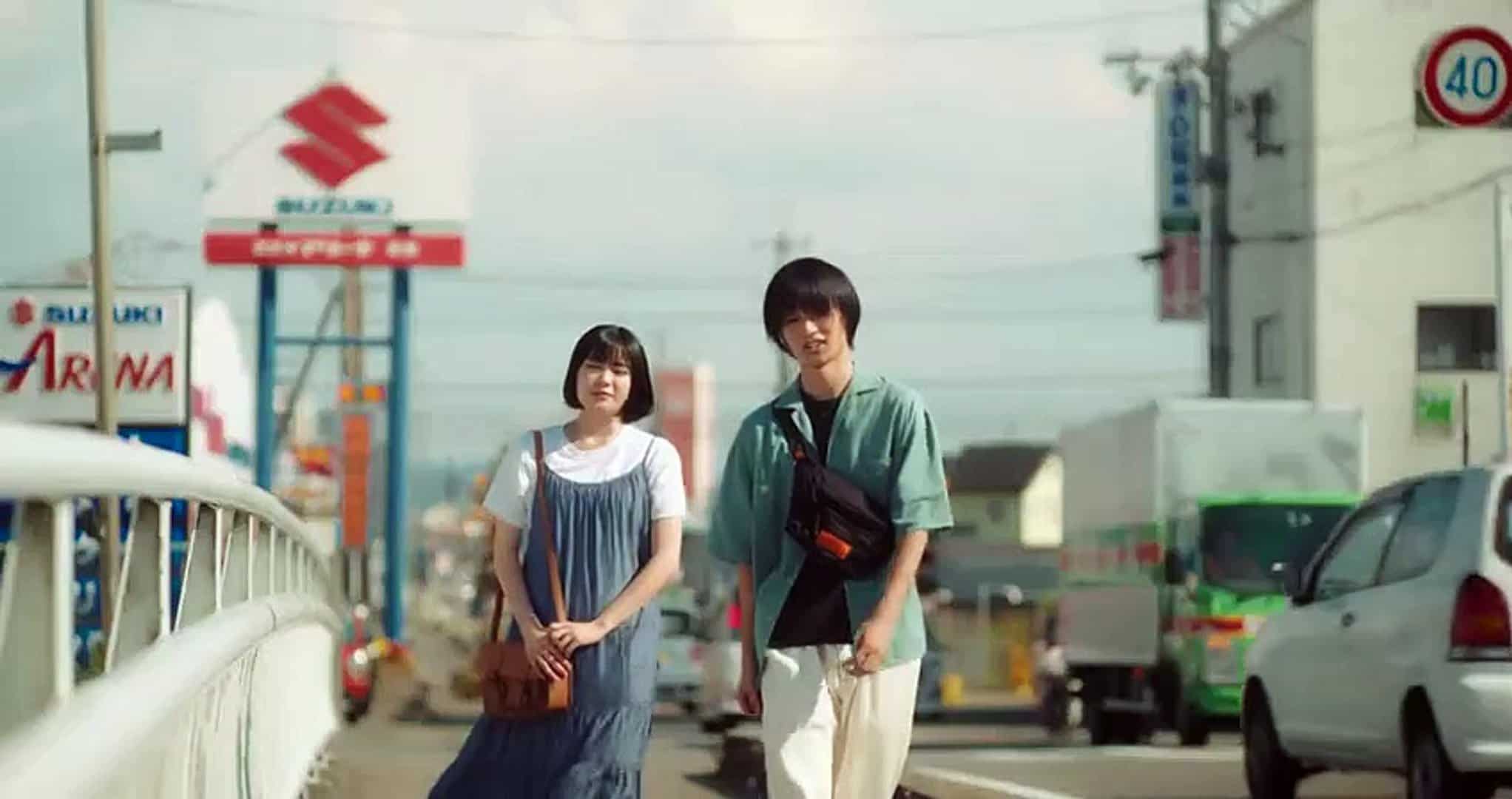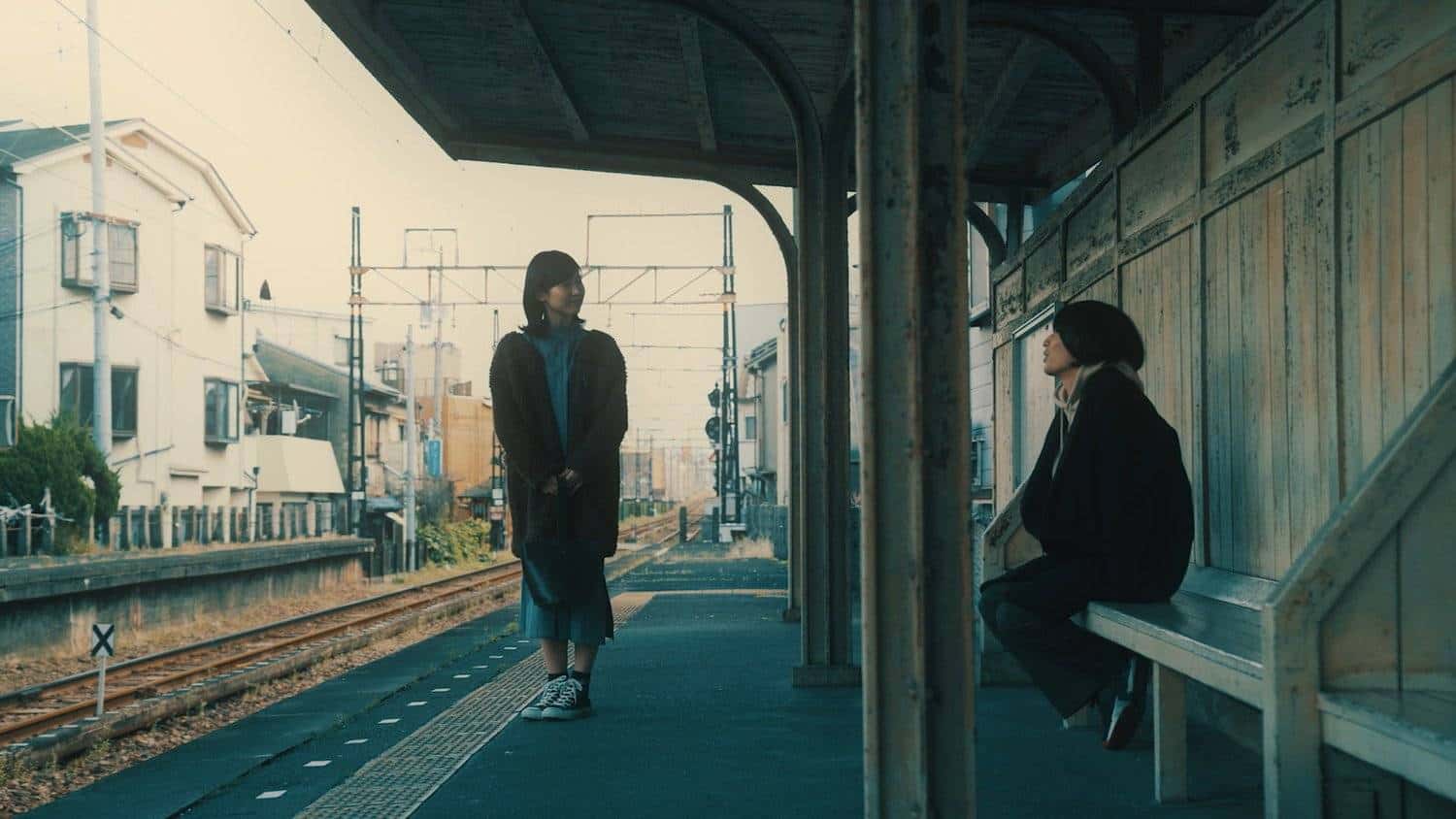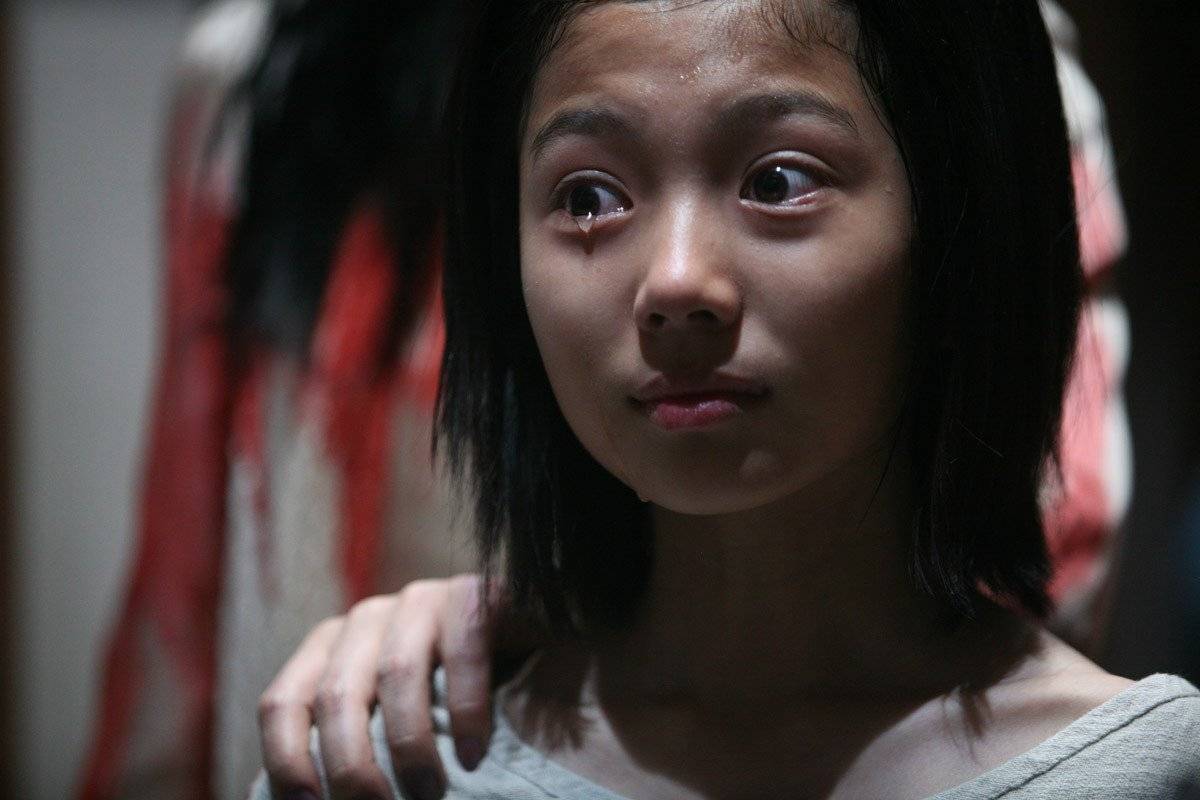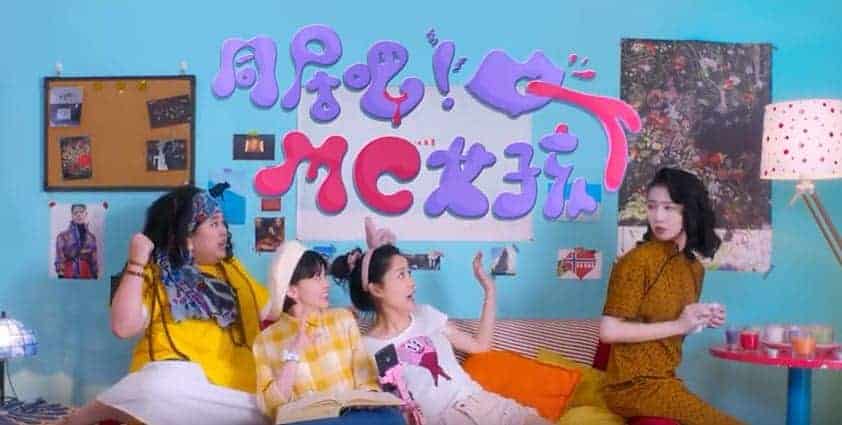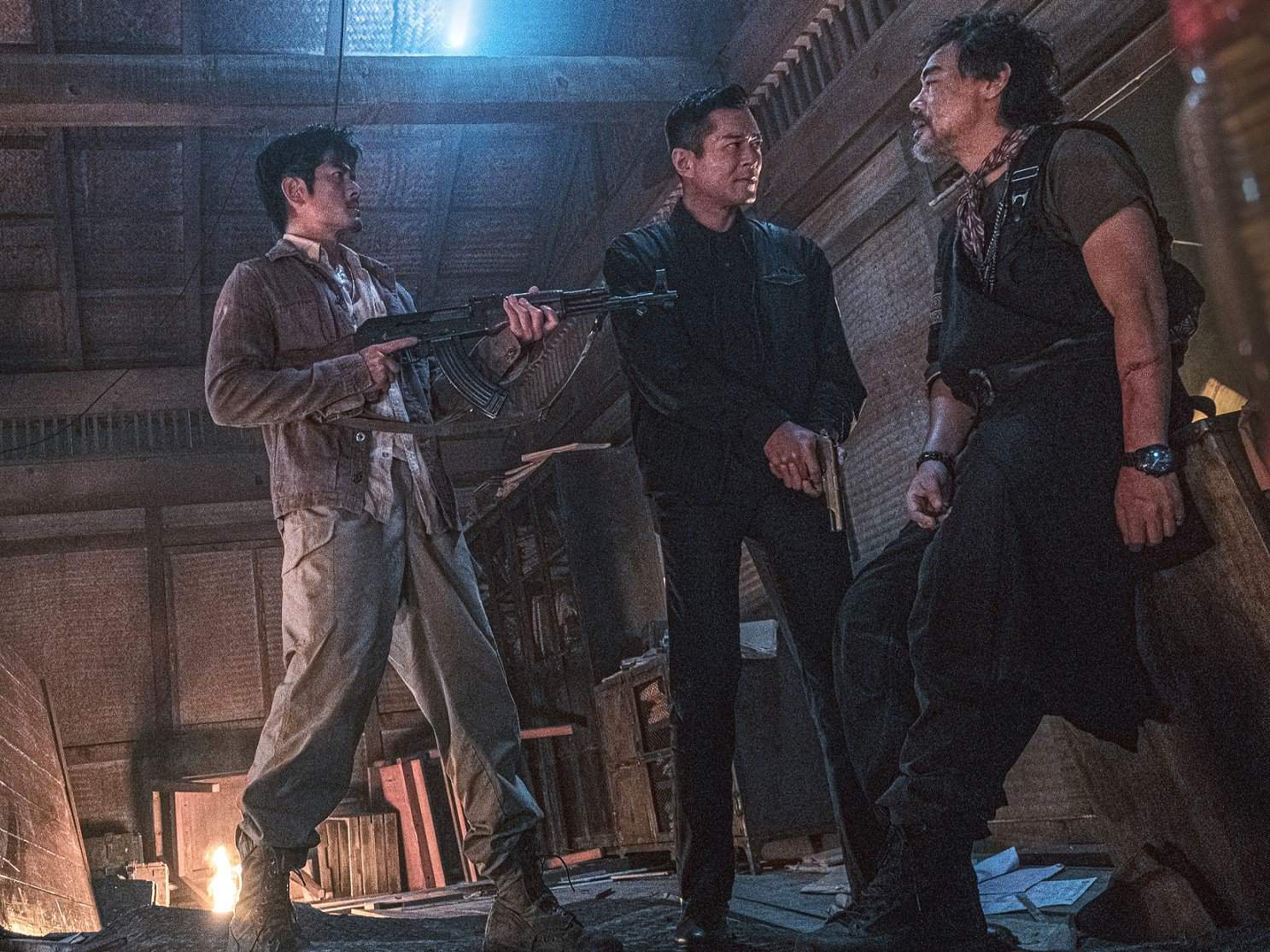During the last two decades, Hirokazu Koreeda has emerged as the contemporary master of Japanese family drama, with films like “Nobody Knows”, “Still Walking”, “Like Father, Like Son” and many more. “After the Storm” continues his legacy in the genre.
A lowlife and his family
Ryota, an ex prize-winning novelist has fallen on hard times. He has stopped writing and currently works in a PI agency. However, he spends the money he earns (with shady tactics) on gambling, and is constantly broke. His wife, Kyoko has divorced him, and since he does not pay his alimony, she does not let him see his son. In order to cope, he tries to earn money by pawning stuff from his parents' house, although his mother, Yoshiko, is on to him, as is everybody else.
Furthermore, when he discovers that his wife is meeting someone, he starts stalking her, since he does not seem to be able to move on, in contrary to Kyoko and Yoshiko. In order to avoid becoming exactly like his deceased father, who has disappointed them all, he tries to play a more significant role in his son's life. A stormy night offers him a chance to redeem himself.
Koreeda's style
Hirokazu Koreeda directs another meaningful family drama in his usual style, which has become the norm for films of the genre in Japan. This style includes slow pace, mellow atmosphere without any kind of outbursts, great attention to detail and particularly in the realistic depiction of everyday life, people, and their interactions, and some small dosages of humor.
His style is wonderfully implemented by the subtle, to the point of non-existent music by Hanaregumi (with the exception of some light-hearted whistling), the utterly realistic cinematography of Yutaka Yamazaki, and Koreeda's own editing.
Moving on
Koreeda presents a message regarding people's ties to their past, and how damaging they can be to those who cannot let go. In that fashion, Kyoko, who has realized that her relationship with Ryota is over, and Yoshiko, who has moved past her husband's death seem to be happy, as they move forward with their lives. Ryota on the other hand, who is still attached to his past as a novelist and to his marriage with Yoshiko, has his life in a standstill that damages both him and the people around him.
This message is chiefly presented through two dialogues that occur during the end of the film, between Ryota and his wife at first, and then with his mother. Particularly during the second one, Yoshiko utters a phrase that encompasses the whole meaning of the film: “Men can't love the present. They just keep chasing whatever it is they've lost, or they keep dreaming beyond their reach.”
The private investigator's line of work
In a sub-story, Koreeda also presents the work PI's do, and he does so in disdaining fashion. He depicts them as cunning, lying individuals, who have no regard for other people's privacy and are willing to do anything for money. Most of these scenes are humorous, but the message is quite clear. The fact that Yoshiko is ashamed of her son's line of work is a definite proof of Koreeda's opinion on the subject.
Kirin Kiki is still great
Hiroshi Abe is very convincing as the lowlife Ryota, and gorgeous Yoko Maki is great as Yoshiko, a former “victim” that has taken life in her own hands. However, the one who steals the show, once more, is Kirin Kiki, who presents a feisty and very intelligent Yoshiko, despite her 73 years. The scenes where she mocks herself and other members of the family, and, in general, the ones she is joking, are the highlights of the film. Lily Franky, who seems to be everywhere these days, also has a small part.
Hirokazu Koreeda has become almost flawless in the particular genre, and “After the Storm” is another sample of his competence.
The film is part of the impressive selection of this year's San Diego Asian Film Festival, that will be on November 3-12.


